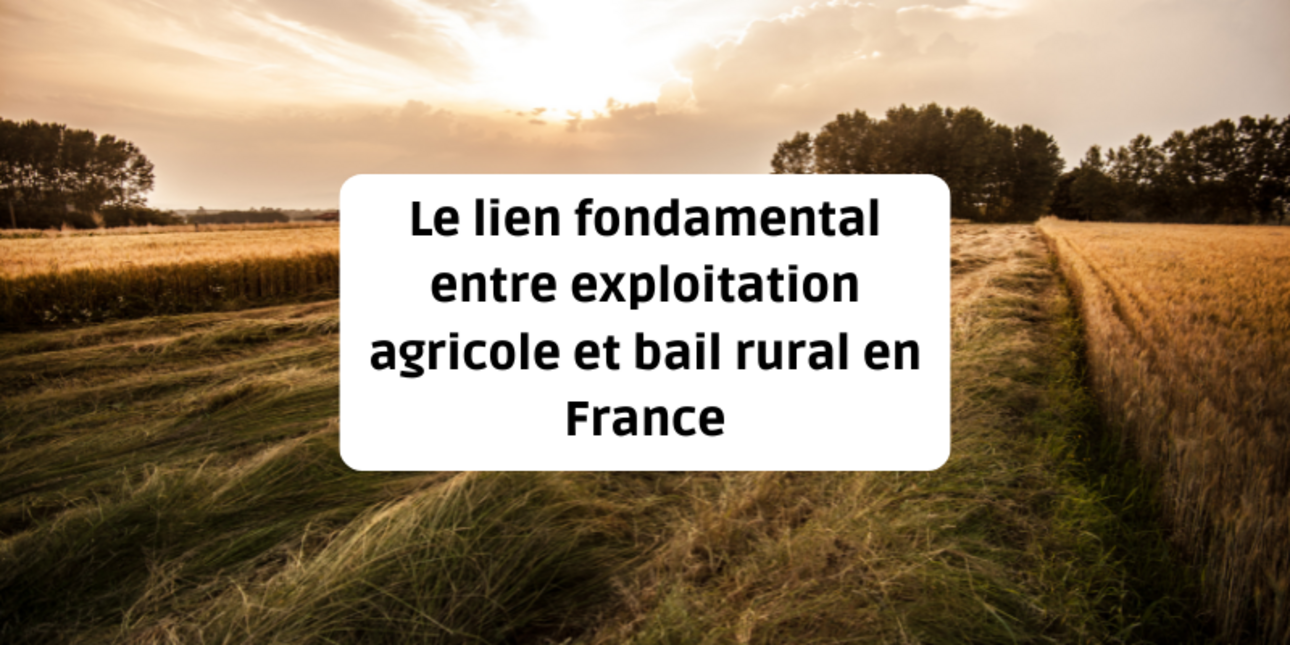
Farming and rural leases are two closely linked elements in the French agricultural landscape. Rural leases are the main legal framework enabling many farmers to access the land they need for their business, without owning it. In short, it's difficult to buy a farm without signing a rural lease.
We are regularly contacted by Internet users faced with a particular problem relating to rural leases:
We generally refer these clients to legal professionals. Each situation is unique, and it is necessary to take the time to examine all the elements in detail in order to provide a reliable response.
However, we thought it would be useful to outline the main rules governing rural leases. The majority of problems arise from a lack of knowledge of the tenancy regulations. If the parties - farmer and lessor - had understood the specific features of leases, many of these problems could have been avoided.
The aim of this introductory article is therefore to set out the main principles governing this crucial relationship between the farm and the rural lease in France.
A rural lease, also known as a farm lease, is a rental contract specific to the agricultural sector. It is an agreement between a landowner (the lessor) and a farmer (the lessee), allowing the latter to use agricultural land or buildings in exchange for rent.
Rural leases have several distinctive features:
Rural leases play a crucial role in the operation and development of many farms in France. Here's why:
For many farmers, particularly young people setting up in business, buying farmland represents a considerable investment. Rural leases offer a viable alternative, providing access to the land needed for farming without the need for large amounts of capital.
In France, 51% of land is farmed under a rural lease. The remainder is divided between land owned by farmers and land made available by individuals to a company of which they are a partner.
The minimum 9-year term of the rural lease provides the farmer with a degree of security. This period allows them to plan their activities over the medium term, invest in the farm and develop their business without fearing eviction in the short term.
Under certain conditions, rural leases allow leased land to be made available to a farming company. This gives farmers greater flexibility in structuring their business.
As the lessee of a rural lease, the farmer has a number of important responsibilities:
The lessee must devote himself effectively and permanently to the operation of the leased property. This is a fundamental obligation, and failure to fulfil it may result in termination of the lease.
The operator must pay the rent agreed with the owner on a regular basis. This rent, known as fermage in the case of a rural lease, is generally regulated by prefectoral decrees.
The farmer must comply with all the clauses of the lease, particularly those relating to the upkeep of the leased property and farming practices.
In certain cases, such as when the land is made available to an operating company, the lessee is obliged to inform the owner. This information must be provided within a specific timeframe and in accordance with a specific set of formalities.
Rural leases differ from other types of leases in several respects:
The Farm Tenancy Act, which governs rural leases, offers significant protection to the lessee. For example, renewal of the lease is automatic unless the owner can show a serious and legitimate reason.
Unlike many other types of lease, rents for rural leases are strictly regulated. They are set according to ranges defined by prefectoral decree.
The lessee of a rural lease has a right of pre-emption in the event of the sale of the land he farms. This provision strengthens the link between the farmer and the land he farms.
Rural leases are a fundamental pillar in the organisation of farming in France. It gives many farmers access to the land they need to run their businesses, while benefiting from a protective legal framework. However, this status also entails major responsibilities for the farmer, particularly in terms of actually using the land and complying with the clauses of the lease.
In the next few articles in this series, we will explore in more detail the various aspects of rural leases, such as how they are entered into, how they are renewed, the rights and obligations of the parties involved, and the specific features relating to certain types of farm.
This in-depth understanding of rural leases is essential for anyone involved in agriculture, whether a landowner, an existing farmer or a future farmer.
Author's note: The information presented here is purely informative and educational and cannot replace an analysis by a professional in rural law. In the event of any conflict or difficulty, please contact one of these professionals (lawyers, notaries, rural law experts, etc.).